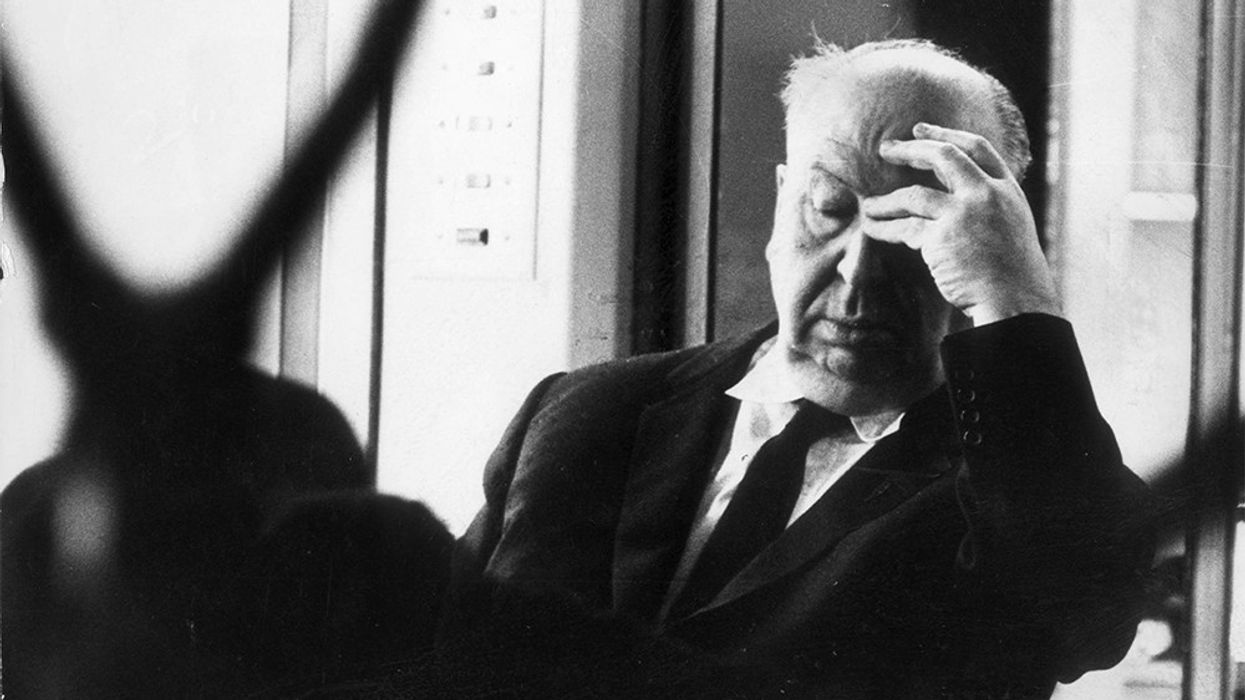What Does the End of Hitchcock's Career Have to Say About the Start?
Hitchcock went out still challenging audiences to laugh and scream.

Alfred Hitchcock could potentially be named the most famous director of all time. His name rings in every film buff's ears. He's the master of suspense, someone who knew how to squeeze every last drop of fear and paranoia out of every scene. His early career was defined by experimentation and the development of style, and the middle of his career delivered some of the greatest films of all time, like Psycho, Rear Window, North by Northwest, and Vertigo.
Still, like one of his protagonists, Hitchcock's luck changed.
Though rightfully considered one of the greatest filmmakers of all time, the final decade of Hitchcock's career is defined by struggle. His final four films were all trying to recapture the glories of his golden age.
This video essay from Eyebrow Cinema is an attempt to make sense of Hitchcock's dark ages, through analysis of his final four films: Torn Curtain, Topaz, Frenzy, and Family Plot. The excellent critiques of each help us to understand the final decade of Hitchcock's career, as well contextualize the period within the rest of Hitchcock's career.
Check it out and let's talk after the break.
What Does the End of Hitchcock's Career Have to Say About the Start?
The breadth of Hitchcock's effect on cinema is hard to contain. The guy received five Oscar nominations; one Thalberg Award (1967); Golden Globes’ Cecil B. DeMille Award (1972); the AFI Life Achievement Award (1979); eight Directors Guild of America Award nominations; and four Emmy nominations, including “best male personality” as host of Alfred Hitchcock Presents. His run of all-time great movies is absolutely incredible.
But the end of Hitchcock's career is marred by a weird stretch of films that have more to say about his early days than his last.
We remember many of Hitchcock's first films and the ones from the middle of his career, but in the end, no one really talks about his last ones. The reason is that Hitchcock took the lessons he learned early on but wasn't able to capitalize on them for the last ones.
Early in Hitch's career, he learned that he needed to use stars to help carry the audience's expectations about his characters. He also knew that his pursuit of telling a story about an everyman sucked into a situation was powerful. Lastly, his cinematography had to be engaging, and the music that scored his films needed to be as courageous as the stories.
Hitch used these lessons to make movies like Rear Window and Vertigo. But at the end of his career, he was struggling to put them back together. Stars were becoming increasingly hard to deal with, his collaborators were dying or taking other projects, and he and Bernard Hermann were on the outs after some creative differences. It seemed like Hitchcock's keys to success were no longer a viable option for him.
Torn Curtain is a boring movie that wastes its star, Paul Newman, and never seems to get going. Topaz is complicated and dull. Frenzy is the only movie people consider to be Hitchcock's final masterpiece, and it's criminally underseen and still suffers from not having a recognizable star that would help carry the movie overseas. Family Plot has funny moments and a fine ending, but it meanders through its middle without much suspense at all.
While Hitchcock's ending movies are a bit of a letdown, they'll always leave us wondering what his career would have been like if he could have had one more hit. If he had gotten the clout to do one last movie with the right budget, stars, collaborators, and story.
Let us know what you think in the comments.
Source: Eyebrow Cinema











